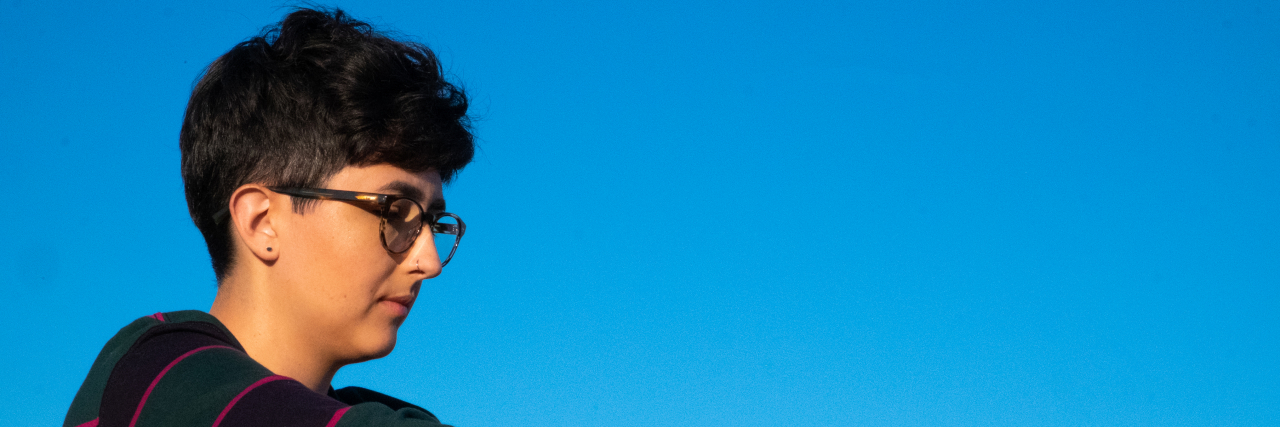Why Coming Out as Autistic Was Harder Than Coming Out as Queer and Non-Binary
I was diagnosed as Autistic at 19 — around the same time that I had fully admitted to myself my queer identity. However, it took me years after telling others that I was bisexual and non-binary to tell almost anyone that I was Autistic.
Being surrounded by an out and proud LGBTQ+ community for most of my high school and college experience made my journey as a queer person much easier. I had a group of friends that was diverse and accepting of sexualities. I remembered having feelings of bisexuality while younger in hindsight but didn’t acknowledge their true meanings until adulthood. While I’m sure the open-minded and diverse group I surrounded myself with helped the ease of my coming out as queer, I was still originally hesitant. Even with this hesitancy, I was proudly and openly queer within a few short years. Soon after, my non-binary identity also fell into place.
While my peers were diverse in many ways, one way that lacked diversity was in ability. Admittedly, I did not have many friends that were openly neurodivergent. When I was diagnosed with autism, I felt like I was on an island. I never really had an issue with being “different,” “odd,” or “weird” as I was frequently called; I didn’t feel alone. I always had a tribe. But for the first time, I didn’t know who around me I could turn to. Outside of the mental health professional that diagnosed me, I didn’t tell almost anyone for years.
A lot of this was my own internalized ableism. Up until this point, developmental disabilities were an “other” that I couldn’t relate to. Everyone I knew that fit the mold was in long-term care or still living with their parents and needed more support than I assumed I needed. While there’s nothing wrong with these supports, I still didn’t feel like I belonged.
Then, I got my first job in healthcare. I worked for group homes for developmentally disabled people as first an aide then a nurse. As I worked side by side with autistic and other disabled adults living in long-term care, I realized how much I did have in common with them. Our shared struggles made me great at my job. My empathy for those I cared for made it the hardest and best job I ever had.
However, this put me further “into the closet” as an autistic adult. While I saw the amazing strength and ability of those described as some of the most “severely” disabled, I also got to see something else as a worker, up close and behind the scenes — how those in that care were viewed by the neurotypical adults who were their caregivers, employers, and even their family and friends. I saw how they treated them and how they talked about them when they thought they couldn’t be heard — or worse, when they could but were convinced they couldn’t be understood. I was afraid of losing the respect of these co-workers until I realized that I didn’t want it. They didn’t treat me well anyway — they were the same ones who treated every “other” as a problem and not someone to embrace.
It took other autistic adults (and teenagers) sharing their stories for me to finally take off my mask. Masking had become exhausting and was making being an autistic adult, mother, and nurse even harder than it already was. As I read more stories, I decided to take the plunge and I told the world. I told the world at the same time I told those closest to me. I regretted not telling my trusted tribe first when I told my story and the support came flowing in.
Now, I’m fully “out” as an autistic, queer, non-binary adult and I’m never going back.
Getty image by Spiderplay.

